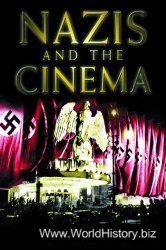On July 16,1979, President Bakr was forced to resign. He was immediately succeeded by forty-two-year-old Saddam Hussein. A member of the Baath Party since 1957, Saddam had participated in the assassination attempt on Abdul Karim Kassim in 1959, and he had organized the secret police force.
During the eleven years of Bakr's presidency, Saddam had established a reputation as a ruthless operator who believed in killing political enemies. More than any other person, Saddam had been responsible for constructing the institutions of a police state that communicated an aura of fear and government invincibility.
At a large party meeting of July 22, the new regime suddenly announced the discovery of a vast conspiracy to overthrow the government. One of Saddam's assistants read a confession by the secretary of the RCC, asserting that he and other Baath officials were part of a plot funded by the Syrian government. Saddam then read a list of sixty-six alleged traitors, including five members of the RCC. The accused were quickly arrested and taken from the hall. The remaining members of the audience responded with prolonged applause and cries of "Long live Saddam." No person dared express skepticism about the evidence presented.
Party members expressed their unqualified confidence in Saddam's leadership, with several declaring that the party had exercised too much lenience in the past. A videotape of the emotional meeting was widely disseminated to send a signal that Saddam would tolerate no opposition.
A special Revolutionary Court quickly found fifty-five men guilty, and twenty-two were executed. Human rights groups charged that confessions were based on torture and threats against family members. With its political monopoly, the Baath Party allowed no independent investigations of such charges.
In order to increase a feeling of revolutionary solidarity, Saddam obliged senior officials to join him in personally executing several of the alleged traitors. At the same time, hundreds of party members and military officers were purged, and scores were secretly executed. Also, numerous potential opponents were gunned down in mysterious circumstances, probably by the
Secret police. Saddam considered all antigovernment dissent— no matter how trivial—as treasonous.
The constitution, as amended in 1973, allowed Saddam to maintain almost total control over the government. In 1980 the first elections were held for a 250-member national assembly, based on universal adult suffrage. Other elections were held in 1984 and 1989. Since the president can override assembly decisions, however, the assembly has exercised no real power. In 1989 a committee was appointed to draft a new constitution which was supposed to expand the role of the national assembly and allow for new political parties. After the later Persian Gulf War, however, the project was postponed indefinitely.




 World History
World History









